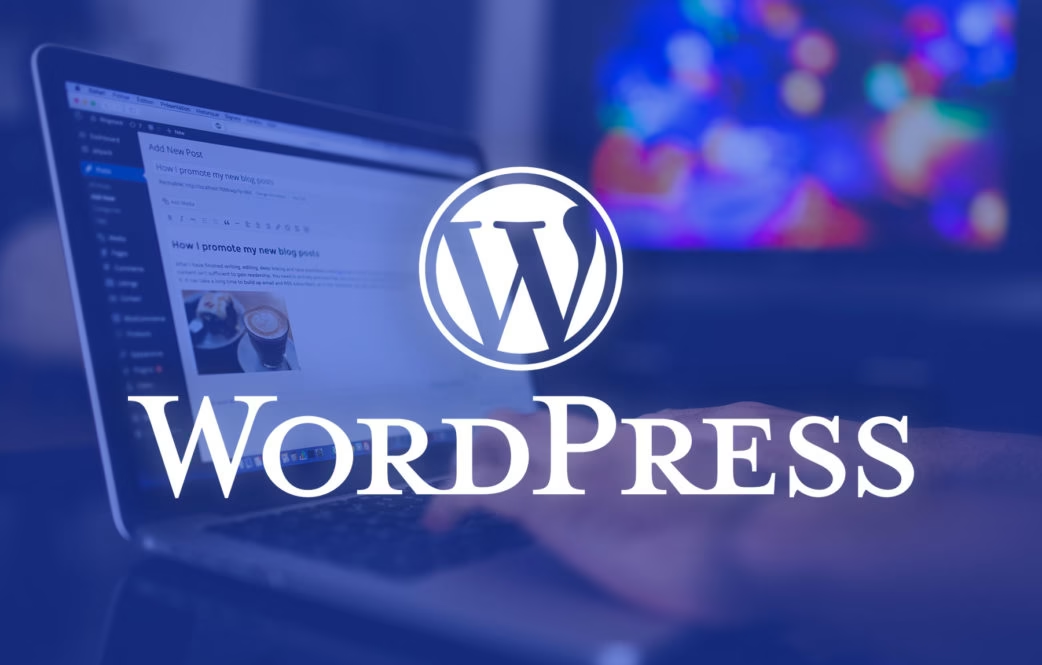WordPress is a powerful, free, and open-source content management system (CMS) used to build websites and blogs. Originally launched in 2003 as a platform for blogging, WordPress has evolved into a full-fledged website builder supporting millions of websites worldwide. Whether you want to create a simple blog, an online store, or a business website, WordPress offers the flexibility and tools to bring your ideas to life.
Today, it powers over 40% of all websites on the internet, making it the most popular CMS globally.
What is a Content Management System (CMS)?
A content management system (CMS) is software that allows users to create, manage, and modify website content without needing to write code. Instead of manually editing HTML, CSS, or JavaScript files, a CMS provides a user-friendly interface for designing pages, adding content, and maintaining the website.
With WordPress, you can easily:
- Publish blog posts
- Upload images and videos
- Design pages
- Manage user accounts
- Customize your site’s appearance
All without touching a single line of code — unless you want to!
WordPress.org vs WordPress.com: What’s the Difference?
It’s important to know that there are two different “versions” of WordPress:
WordPress.org
This is the self-hosted version. You download the WordPress software for free and install it on your own web hosting account. This gives you full control over your website’s design, functionality, and monetization.
You can:
- Install custom themes and plugins
- Modify the code
- Set up an online store
- Run ads and earn money
You own everything. It’s your site, your data, your rules.
WordPress.com
This is a hosted platform operated by Automattic (the company behind WordPress). They take care of hosting, security, and maintenance for you. However, it comes with limitations unless you pay for a premium plan.
With WordPress.com:
- You have fewer customization options (unless you upgrade)
- Certain plugins and themes are restricted
- You may see ads on your site (unless you pay to remove them)
In short:
If you want full control, go with WordPress.org.
If you want simplicity with fewer worries, WordPress.com may be enough.
What Can You Build With WordPress?
WordPress is incredibly flexible. You can use it to create almost any kind of website, including:
- Blogs
- Business websites
- Online stores (using WooCommerce)
- Portfolios
- Membership sites
- Forums
- E-learning platforms
- News and magazine sites
Thanks to the massive library of themes and plugins, you can customize your site to fit virtually any purpose.
Why Choose WordPress?
Here are the top reasons why millions of people choose WordPress:
1. It’s Free and Open-Source
WordPress itself doesn’t cost anything to use. Plus, being open-source means a global community continuously improves the software.
2. Easy to Use
Even beginners can create a website with WordPress. Its dashboard is intuitive, and no coding skills are required to get started.
3. Highly Customizable
Thousands of free and premium themes and plugins let you modify your website’s look and functionality without writing code.
4. SEO-Friendly
WordPress is designed with SEO in mind. Plus, plugins like Yoast SEO and Rank Math can further optimize your site for better visibility on Google.
5. Mobile Responsive
Modern WordPress themes are mobile-friendly out of the box, ensuring your site looks great on all devices.
6. Scalable
Whether you’re starting a small blog or building a high-traffic business website, WordPress can grow with you.
How Does WordPress Work?
At its core, WordPress uses two main components:
- Themes control how your site looks
- Plugins add features and extend functionality
When you set up a WordPress site, you:
- Choose a theme for your design.
- Add plugins for additional features (like contact forms, SEO tools, or online stores).
- Create pages and posts using the built-in editor (Gutenberg).
It all works together to make website creation as easy (or as advanced) as you want it to be.

Who Uses WordPress?
WordPress is trusted by individuals, small businesses, and even major brands around the world. Some famous websites built on WordPress include:
- The New Yorker
- BBC America
- TechCrunch
- Sony Music
- The Walt Disney Company
Whether you’re a solo blogger or a global corporation, WordPress is versatile enough to meet your needs.
WordPress Terminology You Should Know
Here are a few basic WordPress terms that are good to understand:
- Post: A blog entry or news update.
- Page: A static content page (like About Us or Contact).
- Theme: A design template for your site.
- Plugin: A piece of software that adds features to your site.
- Dashboard: The control panel where you manage your site.
- Gutenberg Editor: WordPress’s built-in page builder/editor.
Getting familiar with these terms will make working with WordPress even easier.
How to Get Started With WordPress
Starting a WordPress website is simple:
- Choose a domain name (your website’s address).
- Get hosting from a WordPress-friendly provider.
- Install WordPress (many hosts offer 1-click installation).
- Pick a theme to design your site.
- Install essential plugins for SEO, security, and backups.
- Start creating content and customize your website.
In just a few hours, you can have a professional-looking site live on the internet.
Final Thoughts
WordPress is a powerful, flexible platform that empowers anyone — whether beginner or expert — to build and manage a beautiful, functional website. With its massive ecosystem of themes, plugins, and support resources, WordPress makes website creation accessible to everyone.
If you’re planning to launch a website, WordPress is one of the best choices you can make.
🔗 Suggested Reference Links:
- Official WordPress Website (WordPress.org)
👉 https://wordpress.org/ - WordPress.com (Hosted version)
👉 https://wordpress.com/ - WooCommerce (for WordPress eCommerce)
👉 https://woocommerce.com/ - Yoast SEO Plugin (popular SEO plugin for WordPress)
👉 https://yoast.com/seo-blog/ - WordPress Codex (Documentation)
👉 https://codex.wordpress.org/ - Kinsta WordPress Knowledge Base (optional – they have good resources)
👉 https://kinsta.com/knowledgebase/wordpress/ - WordPress Gutenberg Editor Information
👉 https://wordpress.org/gutenberg/ - W3Techs WordPress Usage Statistics (to back up “40% of websites use WordPress”)
👉 https://w3techs.com/technologies/details/cm-wordpress
Want to hire an expert WordPress Developer? Visit this link:


